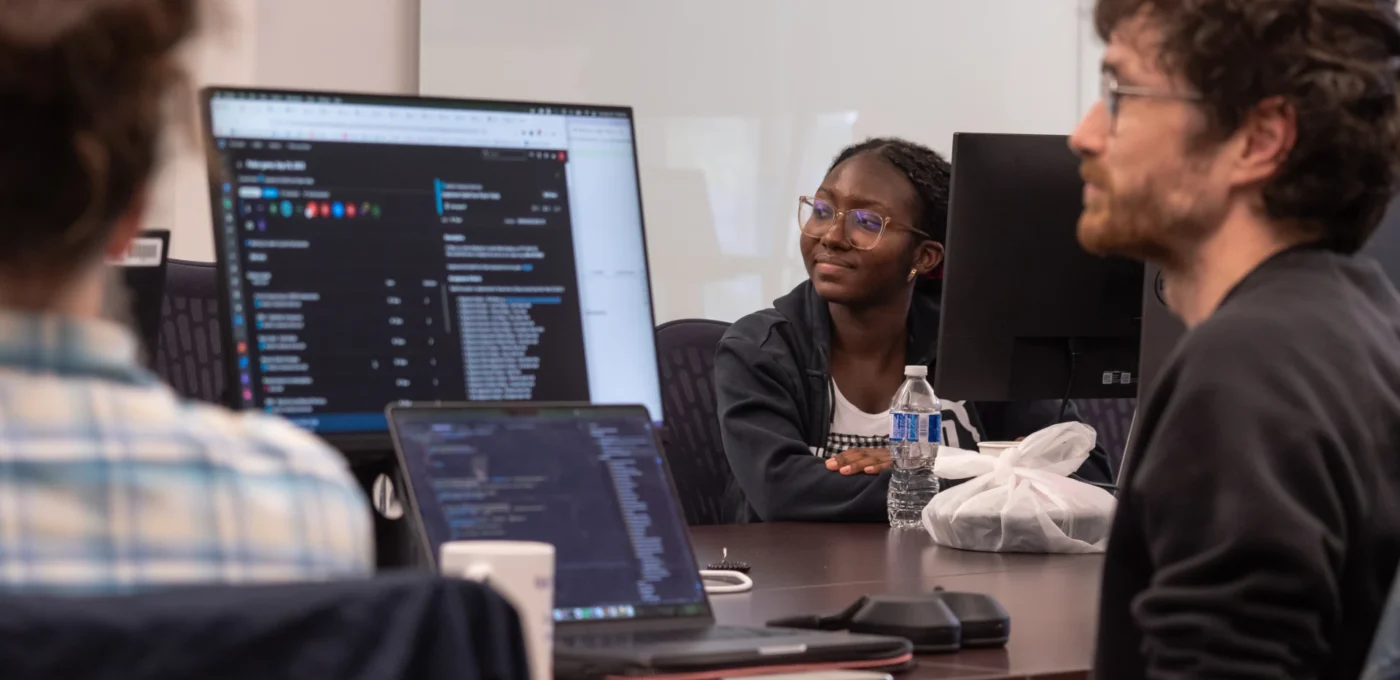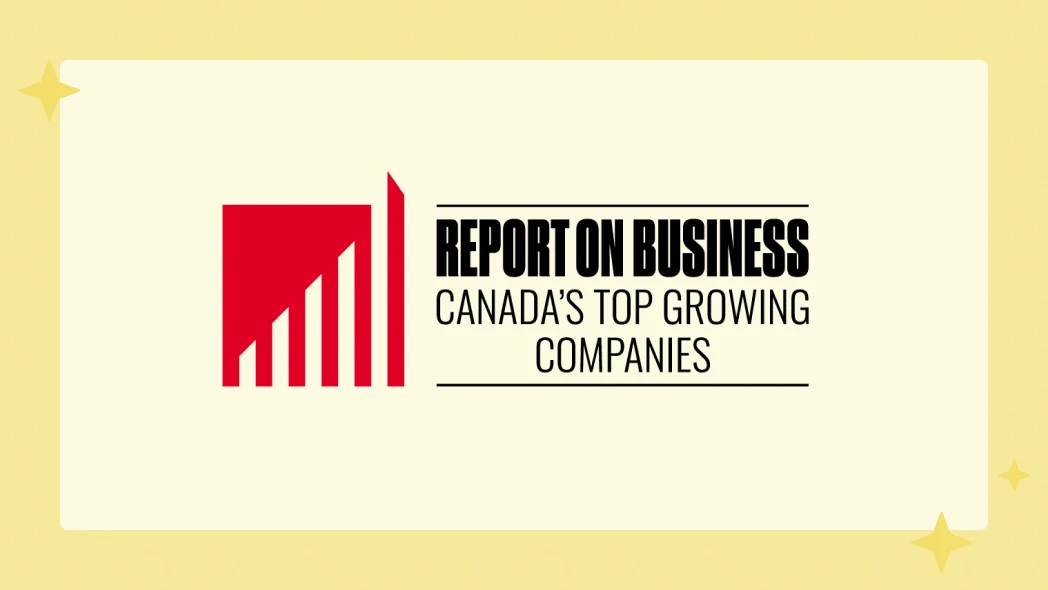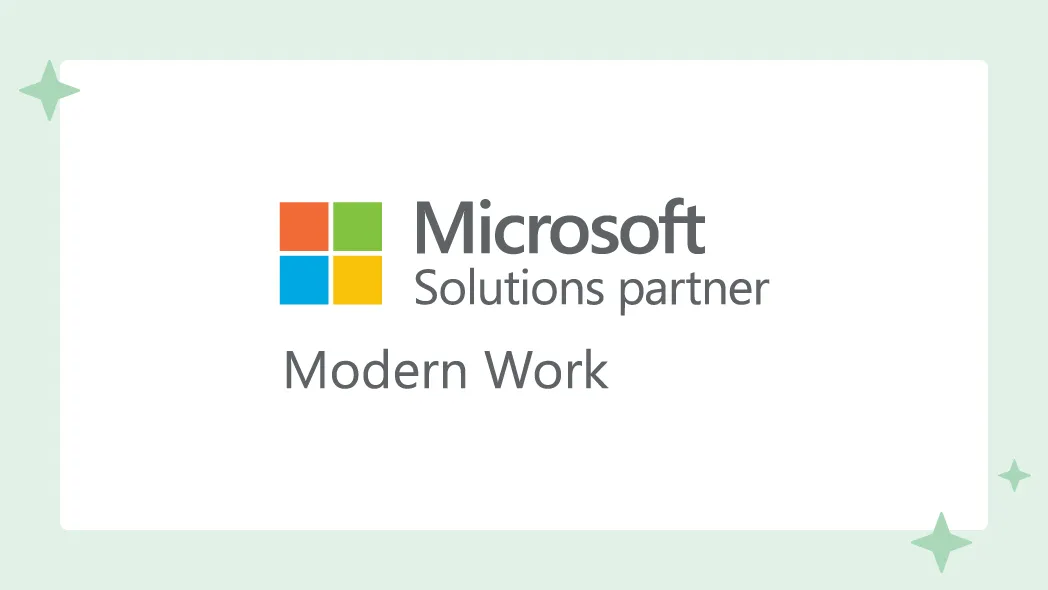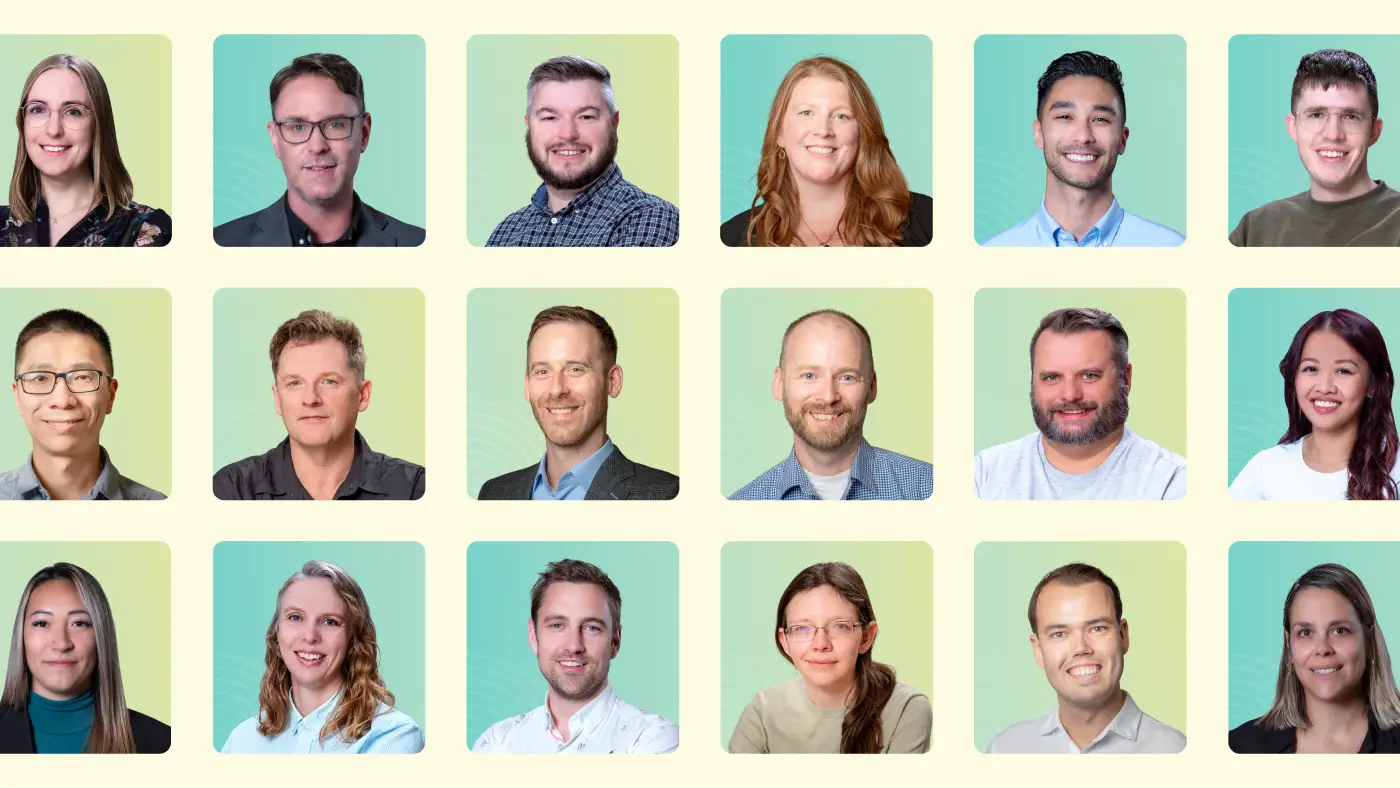Why Punchcard?



What makes Punchcard different?
There are countless consultants, product studios, developers, agencies, and freelancers who can all deliver great results for you.
But we still think you should choose us. Why? Because while we also deliver great results, there are four things that, when put together, make Punchcard truly stand apart.
1
We always focus on the one metric that matters
We want to base decisions on how they affect the overall impact to your business, not on dazzling features and subjective preferences. When we are all aligned on the outcome we are trying to achieve, we can make better decisions throughout the project.
2
We work as one project team, regardless of organization
When we shed our organizational titles and work together as one team, we get the benefit of everyone’s collective expertise. We can think through challenges and opportunities together, and get to the best possible outcome.
3
Zero-to-one is where we shine the brightest
A key part of our process is problem definition and creating user stories—collecting data from real people who will use what we’re making to figure out where the problem actually lies and how they will use our solution to solve it.
4
We really care about our clients…a lot
When we work as one team, and we’re clear on how our work will impact your organization, we can’t help but care. We stay connected to our clients and their projects for the long-term, which usually leads to solving even bigger business challenges along the way.



Our Process
With every new project, we test, iterate, and refine our process. Each phase of our process comes from real experience in creating transformative digital experiences. When we follow our best practices, we can deliver a great outcome for your organization.

Phase 1
Strategy
Every investment you make in your business should have a clear impact—the ROI should justify the investment of time and money. We use two tools to make sure we have a deep understanding of the true problem that needs to be solved, and what it does for your business’ overall performance.
Alignment Workshop
A 90-minute workshop that aligns everyone around your North Star metrics and how it impacts your business.
At the end of the workshop, you’ll have a solid business case and clarity around the core problem you’re really looking to solve and how your business changes as a result.
Blueprint Sprint
A three-week sprint to outline a solution to move your metric(s) that matter in the right direction. We will uncover exactly who your users are, their pains and gains, how they operate in the absence of our proposed solution, and start ideating a solution that will have the most impact.
At the end of the Blueprint Sprint, you will have a high level plan of what we will build, key learnings that will impact our approach, and a detailed schedule and budget to get us to our end goal.
Phase 2
Design & Build
With a clear outcome in mind, we can start the build phase. Based on the final deliverables, we will break the project into sprints—three week intervals during which we complete a piece of work that can be “launched” as final by the end.
Initialization Sprint
In this sprint, we get ourselves organized for the project—set up any access and permissions to different platforms and go through the checklist of foundational work that needs to be done before we get into the rest of the development. For our custom software projects, this is where we use Punchcard CORE—our proprietary rapid development framework, which cuts down the initialization time by 30% and capitalizes on our years of experience.
Development Sprints
Development sprints are two weeks long and have a defined start and end point. During a sprint, we set out to accomplish a goal towards the end product. This goal is agreed upon and prioritized by everyone on the team, including our clients. Each sprint has a kick off meeting, midpoint check in, and a wrap up. Daily stand up meetings are held every day for 15 minutes so we can share quick updates, solve unforeseen problems, and identify roadblocks.
Phase 3
Launch & Support
The launch of your project is really the start of testing how it works in the real world. This helps us understand both the technical and practical reactions to the product and gives us data on how we can continuously improve to meet your desired outcomes.
Launch
During this phase, we move from our sandbox to a live environment, and ensure that everything is working as it should. We can note and fix small bugs quickly, and help train your team to manage your product independently.
Post-Launch Support
With our iterative development approach, we know you will find ways to add benefit to your product as it gets more use. With our post-launch support engagements, we can tailor a solution that suits your needs—training and adoption, additional functionality, code maintenance, and more.



Agile Software Development
There are two key methodologies for developing software: Waterfall and Agile.
Waterfall
…is linear and sequential, and can be a great solution when all of the variables are known—it is based on a clearly defined deliverable that is easy to break down into a project plan.
vs
Agile
…is iterative and based on collaboration and adaptability. It breaks work down into smaller chunks, or sprints, which each have a clear deliverable that can be launched for real user feedback.
At Punchcard, our mindset is, “we don’t know what we don’t know.” And if that’s true, how can we guarantee that our original plan will remain as the best one as we build and learn? Using Agile Development, we can fix time and budget, but we allow for the scope to shift based on unknowns that we uncover throughout the project lifecycle. We believe that this process gives our clients the best result, with confidence that we will deliver on time and within budget.
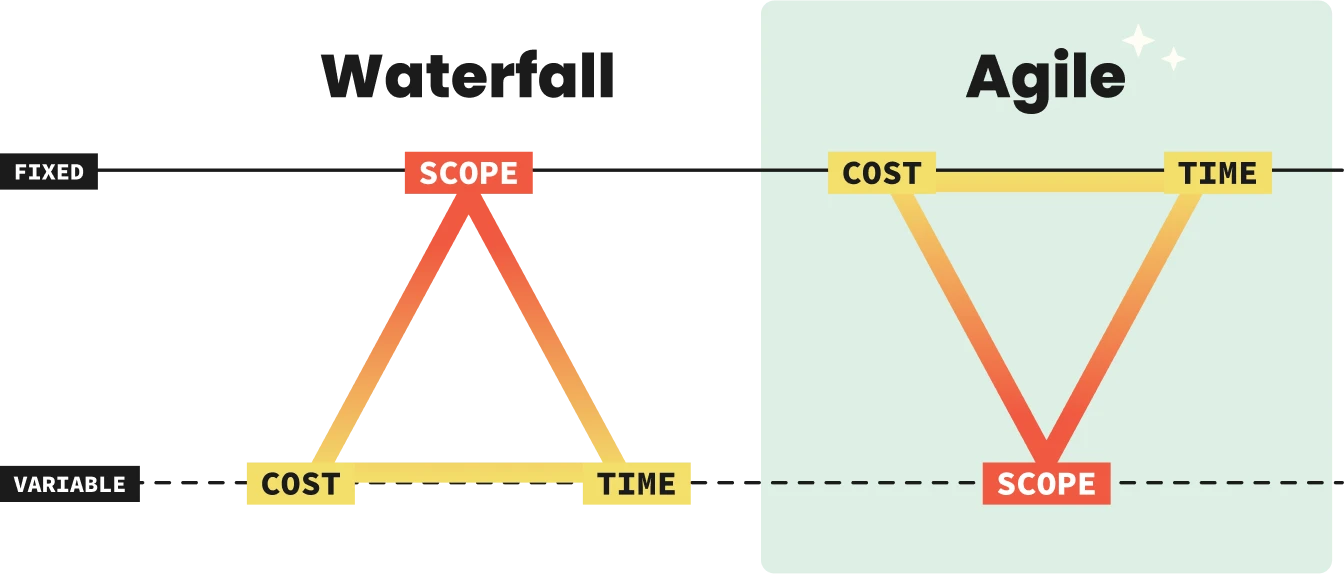



Project Teams
When we work on a project, organizations and titles no longer matter. What we care most about is having the right skills around the table to align on outcomes, do great work, and solve problems as we encounter them.
For this to happen, we need the right combination of product expertise and subject matter expertise, and to empower people to make the best decisions at the right times.
Product Expertise
Digital experiences require a variety of technical expertise—from building the architecture behind the scenes, to prioritizing the roadmap, to shaping the user’s experience.
Product Manager
Prioritizes and defines product features to align with the desired outcomes and the client’s business goals.
Technical Lead
Guides the technical direction, ensures product quality, and mentors team members.
UX Designer
Creates intuitive and engaging user interfaces, ensuring users gets the right intended benefit from the product.
+
Subject Matter Expertise
You know your business better than we do—you are experts in your customers and your organization. We integrate members of your team where and when we need them, so we can deliver the best outcome.
Client Owner
Key product decision maker that collaborates with Punchcard and acts as a member of the core team.
Client Champion
A representative selected by the Client Owner who will be available to Punchcard as a proxy of the Client Owner.
Subject Matter Expert(s)
Actual end users who can provide valuable insight during product development.
These teams are not hierarchical—they do not reflect a person’s standing in their organization. They are a combination of the right skills and authority, and each role may have more input at different times throughout the project.
Our meeting rhythms and team structure ensures we have the right people at the table at the right time—so we can stay adaptable, adjust our scope, and make decisions without sacrificing timelines, all for the goal of achieving our promised outcomes.
